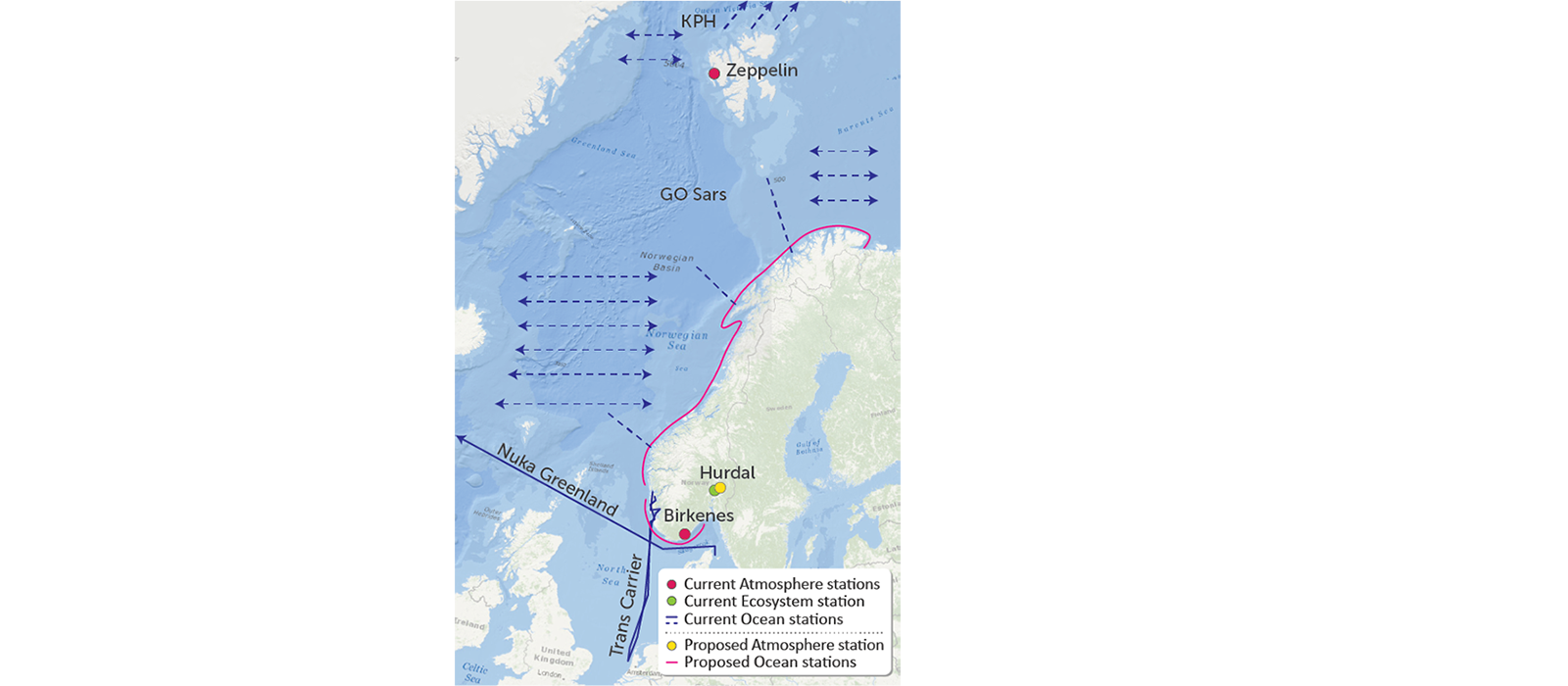Integrated Carbon Observation System (ICOS)-Norway and Ocean Thematic Centre

Knowledge Through Observations
Integrated Carbon Observation System (ICOS) is a European research infrastructure forming an observation system that will measure and assess atmospheric greenhouse gas concentrations ensuring independent and reliable carbon measurements. Through observations, ICOS aims to provide knowledge on how societies have succeeded in reducing their greenhouse gas emissions and how emissions are regionally distributed.
ICOS-Norway is the Norwegian component of ICOS. It will deliver standardized and high-quality carbon data from different sites and platforms as soon as the installation of infrastructure and instrumentation is complete. The new observation system will be an important tool to verify Norway and EU's efforts to mitigate climate change.
The Norwegian sites include towers for air measurements in southern Norway and at Svalbard, a forest station in south-eastern Norway (Hurdal), and the use of two research ships and two commercial ships in the North Atlantic, the Nordic Seas, and areas around Svalbard. Data from the various platforms are integrated and made available to carbon system scientists and various interested parties such as research communities, national agencies, oil and energy companies, and fisheries. ICOS emphasizes free and open access to data and visualizations for easy understanding.
ICOS-Norway is coordinated by NORCE, with partners at UiB, NILU, NIBIO, NPI, IMR, and CICERO.
The Ocean Thematic Centre (OTC) is one of four central facilities within ICOS. The marine element of ICOS provides long-term oceanic observations, which are required to understand the present state and better predict future behaviour of the global carbon cycle and climate-relevant gas emissions. The OTC currently coordinates twenty-one ocean stations from seven countries monitoring carbon uptake and fluxes in the North Atlantic, Nordic Seas, Baltic, and the Mediterranean Sea. Measuring methods include sampling from research vessels, moorings, buoys, and commercial vessels that have been equipped with state of the art carbonate system sensors. The objective is to ensure high quality measurements of greenhouse gas concentrations that are independent, transparent and reliable. In turn, this monitoring system will support governments in their efforts to mitigate climate change as well as holding them accountable for reaching their mitigation targets. The OTC is jointly hosted by NORCE, University of Bergen, University of Exeter, and National Oceanography Centre.
ICOS Norway and OTC was officially launched in April 2016.
Prosjektfakta
Navn
Integrated Carbon Observation System (ICOS)-Norway and Ocean Thematic Centre
Status
CONCLUDED
Periode
01.04.16 - 31.03.21